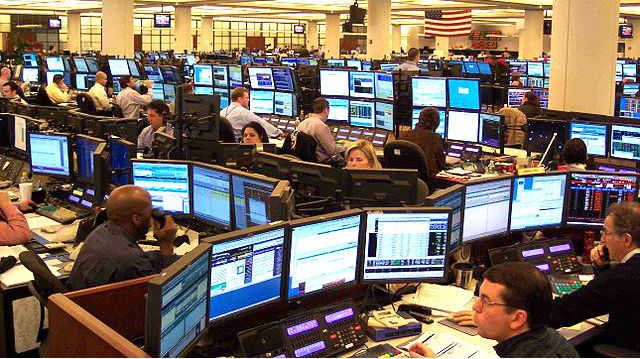JK Capital: The forced delisting of Chinese ADRs - a bonanza for Hong Kong

Fabrice Jacob, CEO JK Capital Management Ltd., a La Française group-member company, comments on the Holding Foreign Companies Accountable Act, that was recently passed in the US Senate.
As part of its anti-China push, the US Senate passed on May 20, 2020 the Holding Foreign Companies Accountable Act that is meant to prevent Chinese companies from being listed in the United States in the form of American Depository Receipts (ADRs) if they fail to comply with the Public Company Accounting Oversight Board’s (PCAOB) audits for three years in a row. The most critical condition to fulfill is for the PCAOB to be given access to the audit papers of local auditors in China. This goes against Chinese law that prohibits audit documents from being sent overseas, whatever the circumstances. Hence a deadlock and a grey area that have been going on for years but that have never been dealt with until Senators John Kennedy (Republican) and Chris Van Hollen (Democrat) submitted their bill. The bill still needs to pass the House of Representatives and to be endorsed by President Trump before it becomes law.
By doing so, the US legislature has probably triggered a chain effect that will accelerate the growth of Chinese equity markets, Hong Kong, Shanghai and Shenzhen, at the expense of US markets. Six months after Alibaba (market cap USD592bn) obtained a secondary listing in Hong Kong, the list of Chinese companies currently trading in New York and seeking a secondary listing in Hong Kong is growing almost by the day. Over the past two weeks, we saw Netease (market cap USD58bn) and JD.com (USD91bn) follow Alibaba’s footsteps. The rumour goes that Yum China (USD20bn), Trip.com (USD15bn), Huazhu (USD11bn), TAL (USD40bn) and New Oriental Education (USD22bn) are in the starting blocks. It is in total approximately 250 companies with a combined market capitalization of USD1.5 trillion that will likely follow the same path and ultimately delist from the New York Stock Exchange within the next two to three years, if not much sooner.
If they list in Hong Kong (like Alibaba, Netease and JD.com recently did), these companies may become eligible to join the Southbound Stock Connect, which will allow any mainland Chinese retail investor with RMB500,000 in his/her securities account to buy into these names. We have seen regulations being amended lately to allow companies with multiple classes of shares and different voting rights list in Hong Kong, which is the case for many of these US-listed Chinese companies. We have also noticed that the two most recently set up Chinese stock exchanges of Shanghai and Shenzhen, namely the STAR Board and the ChiNext, allow companies with multiple voting rights, as well as foreign entities and companies using complex legal structures known as Variable Interest Entities to be listed on their platforms using a fast registration listing process (as opposed to a much lengthier approval listing process that currently applies to the main boards).
As more and more Chinese companies apply for secondary listings in Hong Kong and become eligible to the Southbound Stock Connect, we will likely see trading volumes for these companies shift from New York to Hong Kong. Even though these companies may not be technically eligible for the South Connect yet, it is our bet that rules will be amended very soon to make that happen.
It is reasonable to assume that index bellwethers MSCI and FTSE that are currently using the US ADRs of Alibaba, Netease and JD.com for the computation of their indices will follow the liquidity trend and shift their ADR weighting in favour of the secondary listings in Hong Kong whenever the liquidity of the Hong Kong secondary listings gets close to the liquidity of the ADRs. The sooner mainland Chinese investors can invest in these secondary listings in Hong Kong using the Stock Connect, the sooner MSCI and FTSE will make the switch. This is all the more true if there is a pending threat of forced delisting of the ADRs by US authorities. In order to reduce the tracking error related to the fact that New York and Hong Kong are in different time zones, all trackers (also known as Exchange Trading Funds) that currently have Chinese ADRs within their current China exposure will be poised to follow the indices and do the switch in favour of the Hong Kong secondary listings.
Both China and Hong Kong stock markets have prepared themselves over the past months to welcome those companies that stand to be expelled from the US stock market. One of the pending changes is the revamping of the grand-daddy of all Chinese indices, the Hang Seng Index that had gradually become irrelevant as its antiquated rules prevented it from incorporating secondary listings and companies with different voting rights. Rules have just been amended and, finally, companies such as Alibaba, Meituan Dianping or JD.com will be allowed to join the exclusive club of Hang Seng Index members and its cohort of derivatives and futures contracts, and this will happen as soon as the next review takes place, in August 2020.
Will these Chinese internet and hi-tech giants lose shareholders as a result of the Kennedy-Van Hollen bill? We do not think so. US institutional investors are perfectly capable of investing in Hong Kong or in mainland China through the Stock Connect or by using their own QFII quotas. On the other hand, we believe these companies will benefit greatly from gaining access to mainland retail investors who, until now, could not invest in these leading companies of China.
When submitting their bill to the Senate, it is not certain that Mr. Kennedy and Mr. Van Hollen had in mind the snowball they would be triggering and the negative impact that snowball might have for US brokers and market operators in terms of lost business. From Beijing’s perspective, there is little doubt that the leadership would prefer to see its most high-profile companies listed at home instead of remaining at the mercy of US lawmakers, especially in the present political environment that is nothing other than toxic. And from Hong Kong market’s perspective, Christmas has come earlier this year.








